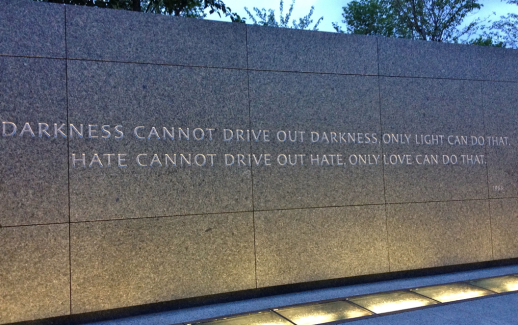The Nord Stream gas pipeline deal between Russia and Germany could enter its own coma along with Russian dissident Alexey Navalny, in whose system German military physicians found the Soviet nerve agent Novichok.
In light of Moscow’s continuing willingness to use state terror to get its way, Berlin should question what authoritarian strings will be attached to the Nord Stream project. While some say putting-off Nord Stream is an issue of not rewarding Putin’s lawlessness, the more urgent issue is preventing Moscow from treating the Nord Stream project as a future investment in gas supply lines for Russian troops moving West.
If such a strategy is on the table, Moscow would likely expect Donald Trump to help Moscow get there. That is the more likely reason for Moscow’s high-stakes active measures surrounding the Executive branch of government, police forces, and fringe elements in the United States.
Putin’s GRU operatives Anatoliy Chepiga and Alexander Mishkin had poisoned former Soviet GRU officer Sergei Skripal and his daughter Yulia last year by applying Novichok to Skripal’s front door knob in Salisbury, U.K. They discarded a perfume bottle used to smuggle the Novichok into the U.K. at a park. Weeks later it caused the chemical warfare death of an innocent British citizen.
In 2006, former KGB/FSB operatives Andrey Lugovoi and Dmitri Kovtun poisoned former Russian FSB officer Alexander Litvinenko’s tea with Polonium-210, a radioactive element causing him a slow, torturous death. These are high profile samples on a longer list of Moscow’s acts of state terror without borders.
When Moscow terrorizes people with chemical, radiologic, and other poisons it mirrors Stalin’s and Hitler’s state terror campaigns against opponents. It also desensitizes Russian security forces to killing civilians. For Hitler and Stalin, desensitization in killing hundreds was a precursor to genocide and democide.
Capt. Chace A. Nelson, USMC, reviewing Aleksandr Dugin’s book The Foundations of Geopolitics: The Geopolitical Future of Russia for the Strategy Bridge, wrote that Dugin “provides bold steps to regain Russia’s position of dominance lost at the end of the Cold War..” including “the invasion of Georgia, the annexation of Ukraine, the separation of Britain from the rest of Europe, and the sowing of divisive seeds in the United States, each of which should sound quite familiar.”
Moscow’s increased ruthlessness in killing and damaging civilians while seizing former Soviet real estate dovetails with Putin’s obvious activation of Aleksandr Dugin’s fascistic imperial vision for Russian foreign policy), and within that plan, tacitly facilitating, hosting, and enabling race nationalists, Neo-Nazis, and other extremists.
The Kremlin has distanced itself from Aleksandr Dugin in recent years, possibly to take credit for his strategies while doing PR damage control after a 2014 lecture at Moscow State University in which Dugin delivered “a rant in support of separatists in Ukraine in which he said, “kill, kill, kill..” leading to his removal by petition for suggesting genocide.
Putin’s KGB career in East Germany is also consistent with his activation and facilitation of national socialists and extremists. According to interviews of retired Stasi Officer Klaus Zuchold by the German media site Correctiv, Putin’s KGB career in Dresden included running the notorious Neo-Nazi Rainer Sonntag, with whom his East German police handler and Putin protege “George S.” shared a nihilistic depravity. Correctiv noted that East German archival documents corroborated important points in Zuchold’s account.
Unsurprisingly, Putin burned documentation of his Dresden operations. BBC reported that in Fall 1989, Putin confirmed he and colleagues at the KGB headquarters in Dresden burned voluminous evidence of his intelligence work: “I personally burned a huge amount of material,” Putin recalled in First Person. “We burned so much stuff that the furnace burst.”
Perhaps not coincidentally, in 1991, Rainer Sonntag was murdered. Reuters’ archival footage of Sonntag’s funeral revealed the chilling size and mood of the Neo-Nazi movement attending Sonntag’s burial rites in Dresden. The Berlin Wall had fallen, Soviet power was waning, and Sonntag’s followers were dedicated.
Then-KGB Major Vladimir Putin, whose approval or indifference allowed Sonntag to build a following, had to know the depth and dedication to Nazism that Sonntag was cultivating among his East German following. His employee and Sonntag’s handler Georg S., whose lack of conscience Putin reportedly admired, had been loyal yet loose with information.
If Dugin had become a liability to President Putin after Dugin’s 2014 rant at Moscow State University, much more would Sonntag’s activities, if tied to the Dresden KGB, have devastating political effect on Putin’s chain of command and Putin himself.
In a worst-case scenario, Putin’s global support for Neo-Nazi, old-Nazi, or Nazi-like extremist groups, militias, and organizations could mean Putin “went native” during his East German KGB experience with respect to the Stasi’s inherited Nazi elements, practices, and fanaticism.
Putin’s unique KGB access would enable him to know more about the Nazi legacy in East Germany, as recent reports reveal that historical Nazi records of Hitler’s “Final Solution” had been confiscated by Soviet intelligence after its march on Hitler’s stronghold.
Historian Henry Leide studied the careers of 35 former Nazi officers that the East German Stasi (secret police) , recruited, protected, and used for intelligence purposes contrary to publicized GDR socialist ideals. According to his book “NS-Verbrecher und Staatssicherheit: Die geheime Vergangenheitspolitik der DDR,” (“Nazi Criminals and the Secret Service: The German Democratic Republic’s Secret Ways of Dealing With the Past,”):
“The Stasi deliberately and systematically recruited Nazi criminals, sometimes those who orchestrated massacres, as informers and agents both in the east and the west,” Leide said..[and] “The presence of some former National Socialists in the new state party, the Socialist Unity Party of Germany (SED), was really just the tip of the iceberg,” Leide writes. “Where qualifications were needed and there was strong competition from the West, they could be found in high concentrations.”
As for Putin’s work record in Dresden, defectors and former Stasi related extraordinary KGB control at the top during the Cold War, even as the GDR’s famed spymaster Markus Wolf downplayed Putin’s early importance during his Dresden years. Such output could have been intended to conceal Putin’s importance in utilizing former Nazis as agents training state and non-state terrorist organizations in West Germany, Syria, Palestine, Iraq, and elsewhere. Exploration of Putin’s early role could implicate Wolf himself, who had sought to distance himself from the GDR’s use of Nazi agents.
According to Correctiv, KGB officer Putin had sought information on traceless poisons for assassinations, a technique much used against Putin’s later opponents and the catalyst putting the Nord Stream project in doubt today.
Given the actions taken under his extremely concentrated power since, Putin appears to have appropriated Nazi methods, ruthlessness, and tactical variations as an ace up his sleeve against opponents who could not imagine his secret affinity. And, even if the world awakens to his affinities, he has the UN Security Council veto and nuclear weapons as backup powers.
Whether Putin’s inhumanity is more like Stalin’s, more like that of the Nazis, or a customization of both, his use of national socialist and nativist extremists against European governments seems directed at getting them in power to withdraw their respective countries from NATO. Once done, such extremists would be expendable for Moscow’s purposes, and the door opened to left-leaning parties and malleable leaders to lend legitimacy to Moscow’s denials of supporting the extremists on the right, putting a false cloak of humanity on Putin’s legacy.
If rightists failed to yield power over Europe, however, Putin’s Russia would likely justify invading Europe to “liberate” post-NATO Europe from the extremists and Neo-Nazis he once had supported. Putin would deny that Russia ever supported the fascists and would back leftists who would invite a substantial Russian military presence to keep the right at bay. Meanwhile, Putin would count on Trump standing down to let NATO thus collapse and the “New Russian Century” proceed.
Part of Putin’s implied plan is visible in his information warfare machine’s false accusation against the United States Army for spreading Covid19 to China early this year, implying that his strategy would preoccupy the U.S. and China in a conflict that cleared the way for Moscow’s war to retake former Soviet territory and parts of Eastern Europe.
The United States is past due for leadership that can and will reverse what appear to be growing risk factors for major regional wars, if not world war. Strong action is necessary to cure gaps at home and deepen support within NATO to check Putin’s demoralization, destabilization, and destruction of European and U.S. democracies. Such would prevent the United States from being isolated and cut-off from world economies as a militant Russia and China fill the power vacuum.
To have friends America must be a friend among free nations. The 2020’s are not a time to fight cultural wars and election litigation in the United States, Europe, or the U.K., but a time to innovate policy solutions that fix the underlying problems causing persistent, wasteful issue-conflict.

